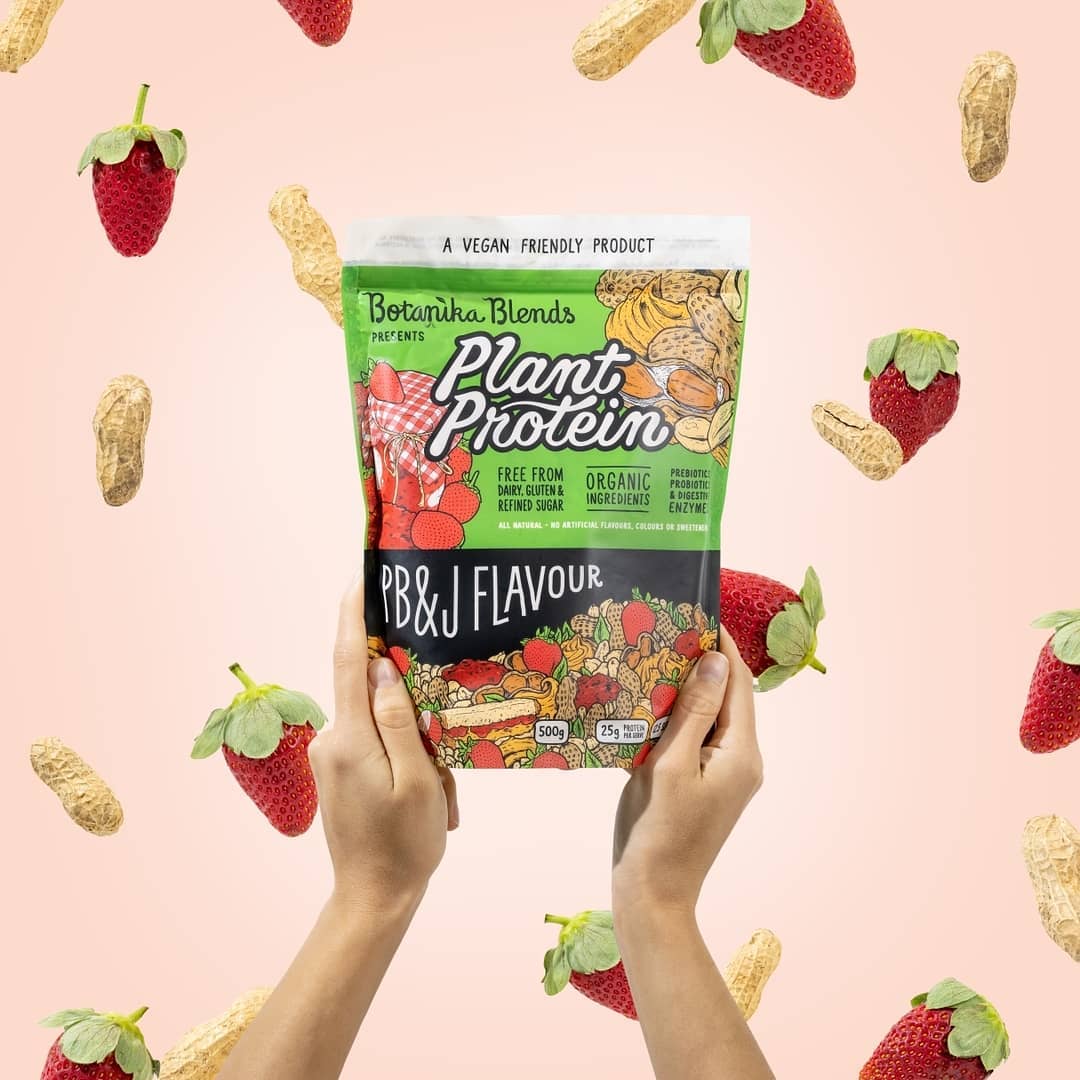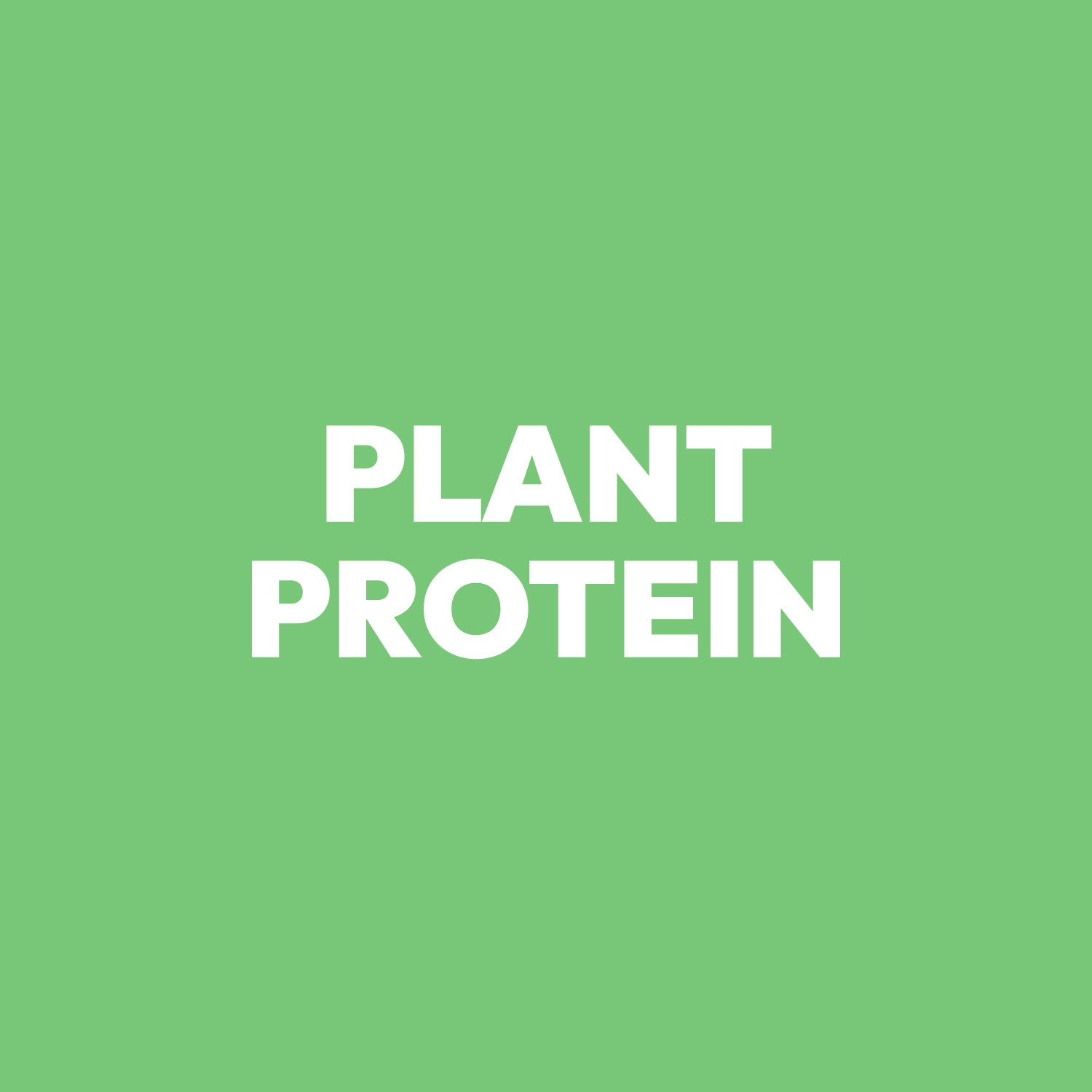

Benefits of Plant Protein
The rise in plant based proteins isn’t just a trend—it’s part of a bigger shift towards better health, balanced diets, and sustainable nutrition. From peas and rice to hemp and soy, plant protein sources are packed with nutrients that fuel your body, support muscle building, and may even lower the risk of chronic diseases like cardiovascular disease.

At Botanika Blends, we believe that plant based protein powders should do more than just tick a nutritional box. That’s why our blends combine organic pea protein, brown rice protein, faba bean protein, and pumpkin seed protein with gut-friendly prebiotics, probiotics, and digestive enzymes—a mix that delivers both essential amino acids and real health benefits.
1. What Are Plant Proteins?
Plant proteins come from plant foods like legumes, seeds, nuts, and whole grains. Unlike many animal proteins such as whey protein, plant proteins naturally include dietary fiber, healthy fats, and essential nutrients that support digestive health and overall human diet quality.

Some common plant based protein sources include:
-
Pea protein – rich in branched chain amino acids (BCAAs).
-
Brown rice protein – easy to digest with a superior amino acid profile when paired with pea protein.
-
Soy protein – one of the few single-source complete proteins.
-
Hemp protein – contains omega-3s and healthy fats.
-
Pumpkin seed protein – nutrient-rich and gut-friendly.
At Botanika Blends, we use these plant based sources to create protein blends that are not only delicious but also nutritionally balanced.
👉 Check this article about what is plant based protein
2. The Health Benefits of Plant Protein
Switching to plant based protein consumption offers wide-ranging health benefits:
Supports Heart Health
Studies link higher animal protein intake to increased risk of coronary heart disease, while substituting plant protein has been shown to reduce blood pressure and improve blood lipids, supporting better cardiovascular health.
Helps with Weight Management
Many plant foods are rich in dietary fiber, which promotes satiety and helps prevent overeating. Research also shows people with more plant based protein in their diet tend to have lower body fat percentages and improved body composition.
👉 Check this article about vegan diet and whey management
Improves Digestive Health
Unlike processed foods or some animal based proteins, plant based proteins come with fiber and healthy fats that support a strong digestive system and overall gut health.
👉 Check this article about vegan protein and digestion
Reduces Risk of Chronic Diseases
Regularly eating plant based protein as part of varied dietary patterns can help lower the risk of developing metabolic syndrome, cancer risk, and other chronic diseases.
Provides Complete Nutrition
While not all plant protein isolates are complete proteins, combining complementary protein sources (like pea + rice protein) ensures a complete amino acid profile with all the indispensable amino acids your body needs for muscle repair, protein synthesis, and adequate protein intake.
3. Plant Protein vs Animal Protein

One of the biggest misconceptions is that plant proteins are inferior to animal protein. The truth is more nuanced:
-
Animal protein like whey protein provides complete protein sources, but often comes with saturated fats and possible adverse health effects in high amounts.
-
Plant based proteins provide all the nutritional benefits of protein while also delivering fiber, antioxidants, and healthy fats—without the downsides.
In fact, research suggests that substituting plant protein for animal products can reduce cancer risk and improve metabolic health.
👉 Check this article about plant protein vs whey protein
4. Botanika Blends: Plant Protein Done Right
At Botanika Blends, we’re passionate about creating plant based protein powders that deliver enough protein per serving while supporting digestive health and lifestyle factors.
Here’s what makes our blends stand out:
-
✅ 24–26g protein per serve from organic pea, brown rice, and faba bean proteins.
-
✅ Full amino acid content for muscle growth and recovery.
-
✅ Added prebiotics, probiotics, and digestive enzymes for enhanced absorption and digestive comfort.
-
✅ All natural ingredients – no artificial sweeteners, no fillers, no nasties.
-
✅ Delicious flavours like Vanilla Cake Batter, Strawberries & Cream, Choc Peanut Butter, and Bubble O’Wiz.
-
✅ 100% vegan, dairy free, gluten free, and made in Australia.
Whether you’re looking to support cardiovascular health, manage your body weight, or build lean muscle, our plant based nutrition range is here to fuel your journey.
👉 Check this article about completed plant-based protein powders
The Bottom Line
The benefits of plant protein extend far beyond the gym. From lowering the risk of cardiovascular disease to supporting weight management, digestive health, and chronic disease prevention, plant based proteins are a smart choice for anyone focused on long-term health benefits.
At Botanika Blends, we’re proud to create plant protein powders that deliver both nutritional quality and taste, making it easier (and more delicious) to fuel your body with essential nutrients every day.
👉 Ready to experience the health benefits of plant protein? Explore our full range of vegan-friendly, gut-loving protein powders today.
Share:
FAQ – Benefits of Plant Protein
More blogs
-

Best Natural Sleep Drinks Australia 2026
Sleep drinks are revolutionising how Australians approach better rest. Unlike tablets or teas, they deliver concentrated doses of sleep-supporting ingredients in a warm, enjoyable format that fits seamlessly into your evening routine. Magik Mylk Sleepy Hot Chocolate leads the market with...
-

Natural Sleep Ingredients Explained
Looking for better sleep without synthetic chemicals? Plant-based sleep supplements combine time-tested botanicals with modern science. Magnesium relaxes your muscles, L-glycine lowers body temperature for deeper sleep, L-tryptophan supports serotonin production, passionflower eases anxiety, and chamomile promotes calm, all working together naturally. This guide breaks down the top ingredients backed...
-

Chocolate Rice Protein Pudding
Leftover rice… but make it dessert 🍫This Chocolate Rice Protein Pudding is rich, silky, and quietly genius. Zero waste energy, chocolatey comfort vibes, and a sneaky protein boost... aka dessert that does more. Method 1. Melt your chocGently melt the dark...
















